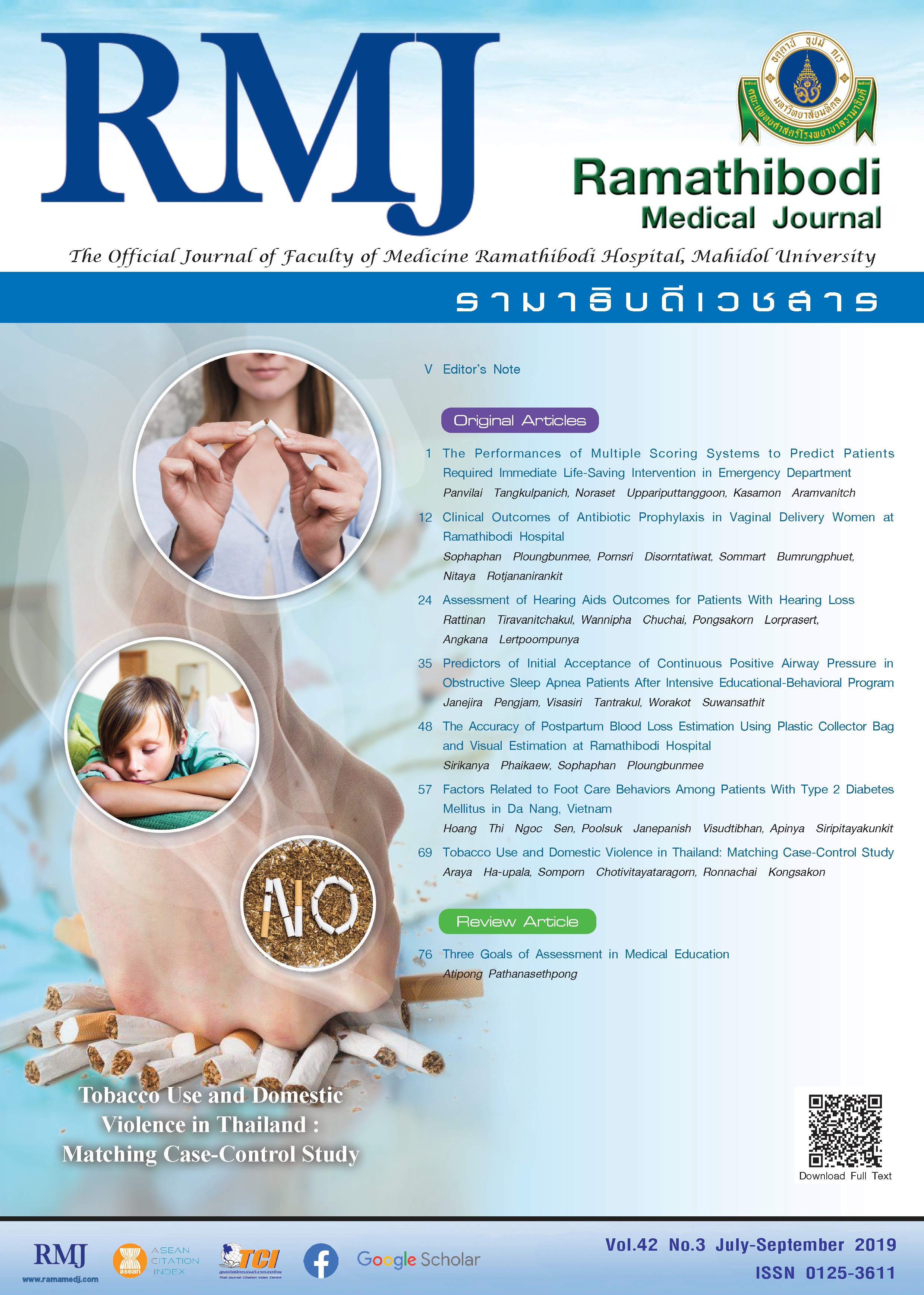Three Goals of Assessment in Medical Education
Main Article Content
Abstract
Assessment is closely connected to learning since assessment allows a learner’s current competencies to be measured. The results of such a measurement can then be used to produce learning. There are three goals for assessment in medical education: assessment of learning, assessment for learning, and assessment as learning. These three goals serve different purposes and therefore differ in how they are carried out. They also require different approaches for the assessors. It is crucial that all three goals be balanced and attained lest the testing culture wax and the learning culture wane, resulting in a situation in which learners place too much emphasis on passing the tests and not enough emphasis on learning and growing. No single method of assessment can sufficiently achieve all three goals. One comprehensive approach to achieve as well as balance all three goals is to utilize programmatic assessment, in which various methods of assessment are employed based on their strengths and how they can cover each other’s limitations.
Article Details
References
Earl L. Assessment-a powerful lever for learning. Brock Education. 2006;16(1). doi:10.26522/brocked.v16i1.29.
NSW Education Standards Authority (NESA). Assessment for, as and of Learning. https://educationstandards.nsw.edu.au/wps/portal/nesa/k-10/understanding-the-curriculum/assessment/approaches. Accessed February 12, 2019.
Earl L, Katz S. Rethinking Classroom Assessment with Purpose in Mind. Winnipeg, Manitoba: Western Northern Canadian Protocol; 2006.
Moses MS, Nanna MJ. The Testing culture and the persistence of high stakes testing reforms. Educ Cult. 2007;23(1):55-72. doi:10.1353/eac.2007.0010.
Shepard LA. The role of assessment in a learning culture. Educ Res. 2000;29(7):4-14. doi:10.3102/0013189X029007004.
Earl L. Assessment As Learning: Using Classroom Assessment To Maximize Student Learning. 2nd ed. Moorabbin, Vic: Hawker Brownlow Education; 2014.
van der Vleuten CP, Schuwirth LW. Assessing professional competence: from methods to programmes. Med Educ. 2005;39(3):309-317. doi:10.1111/j.1365-2929.2005.02094.x.
Schuwirth LW, van der Vleuten CP. Programmatic assessment: from assessment of learning to assessment for learning. Med Teach. 2011;33(6):478-485. doi:10.3109/0142159X.2011.565828.
Heeneman S, Oudkerk Pool A, Schuwirth LW, van der Vleuten CP, Driessen EW. The impact of programmatic assessment on student learning: theory versus practice. Med Educ. 2015;49(5):487-498. doi:10.1111/medu.12645.
van der Vleuten CP, Schuwirth LW, Driessen EW, et al. A model for programmatic assessment fit for purpose. Med Teach. 2012;34(3):205-214. doi:10.3109/0142159x.2012.652239.
van der Vleuten CP, Schuwirth LW, Driessen EW, Govaerts MJ, Heeneman S. Twelve tips for programmatic assessment. Med Teach. 2015;37(7):641-646. doi:10.3109/0142159X.2014.973388.




